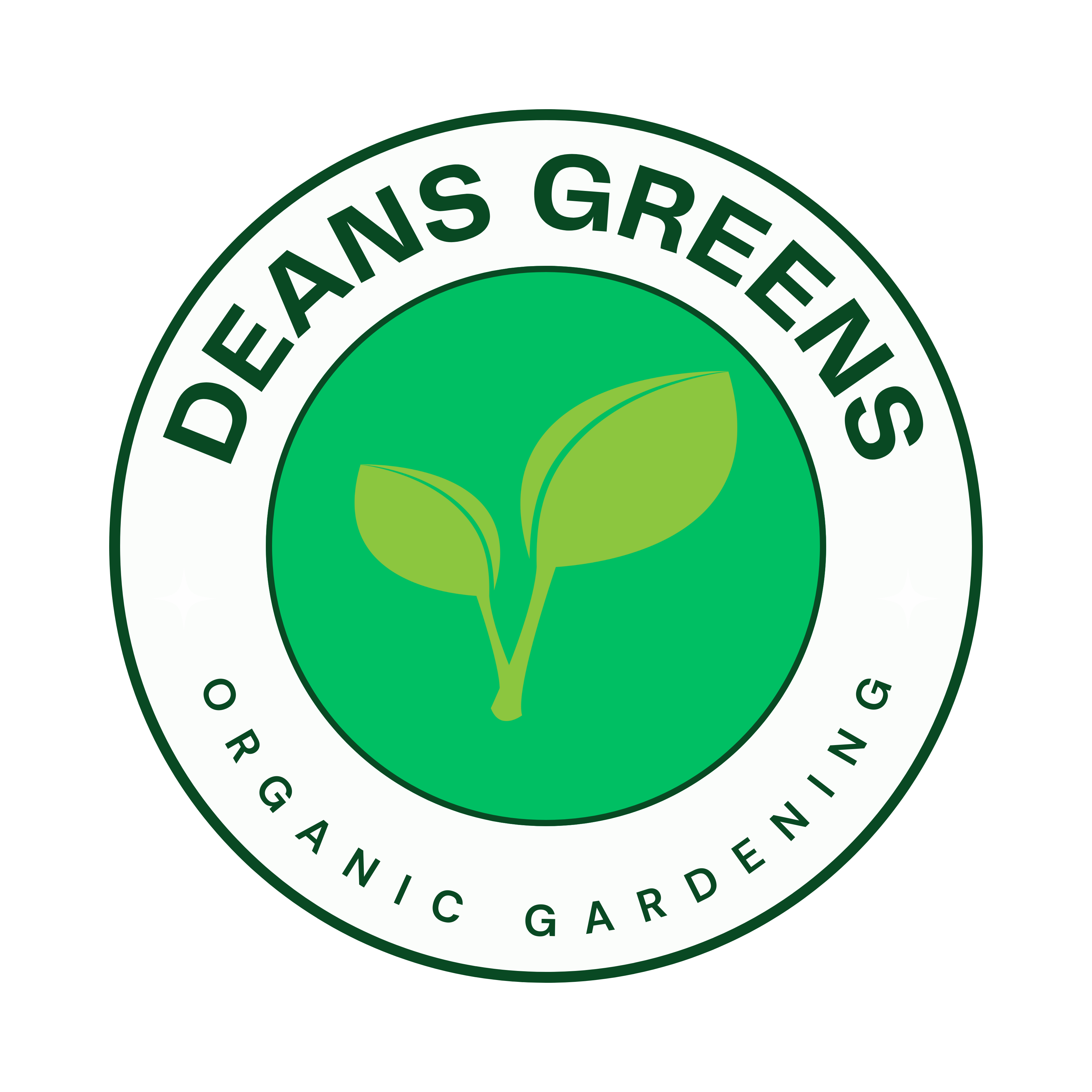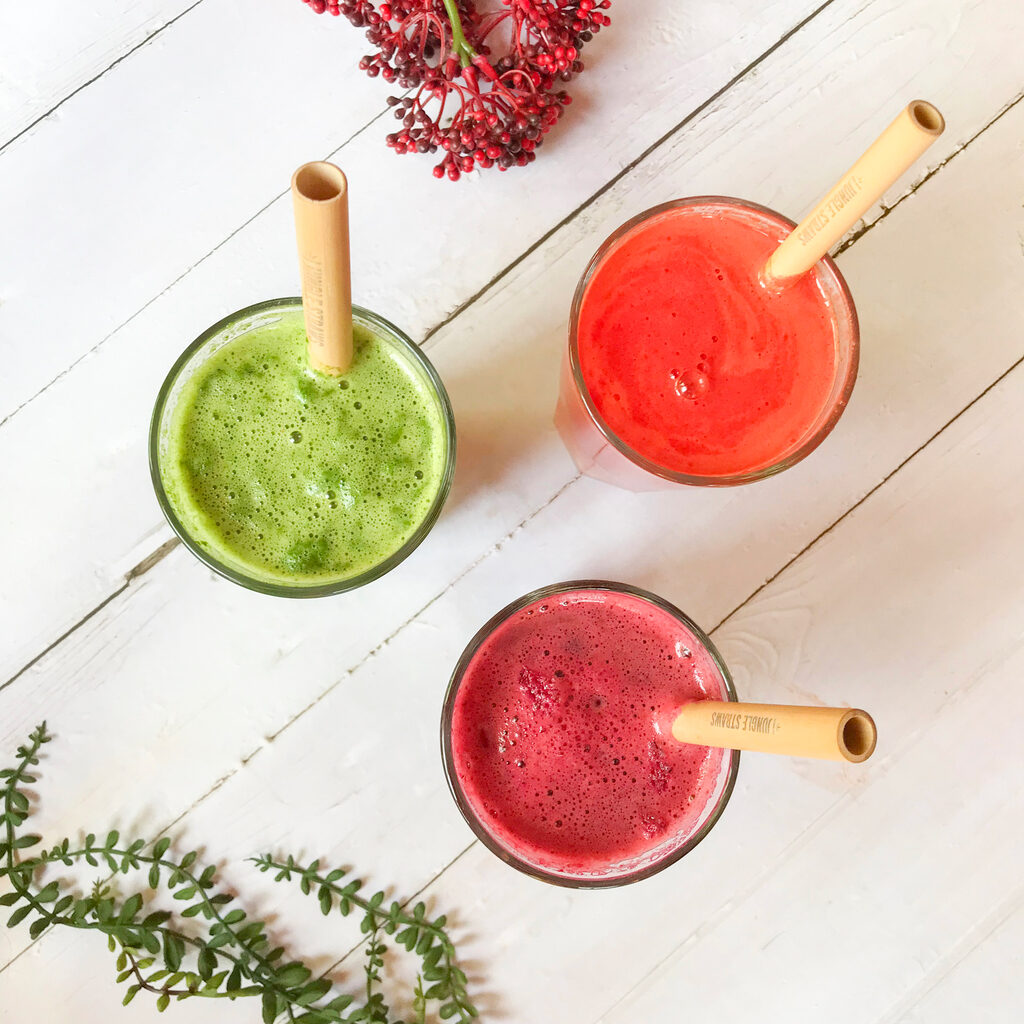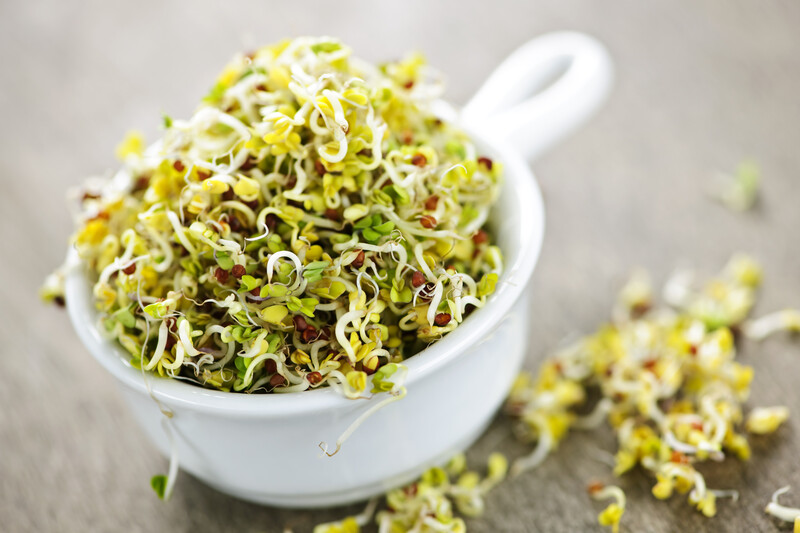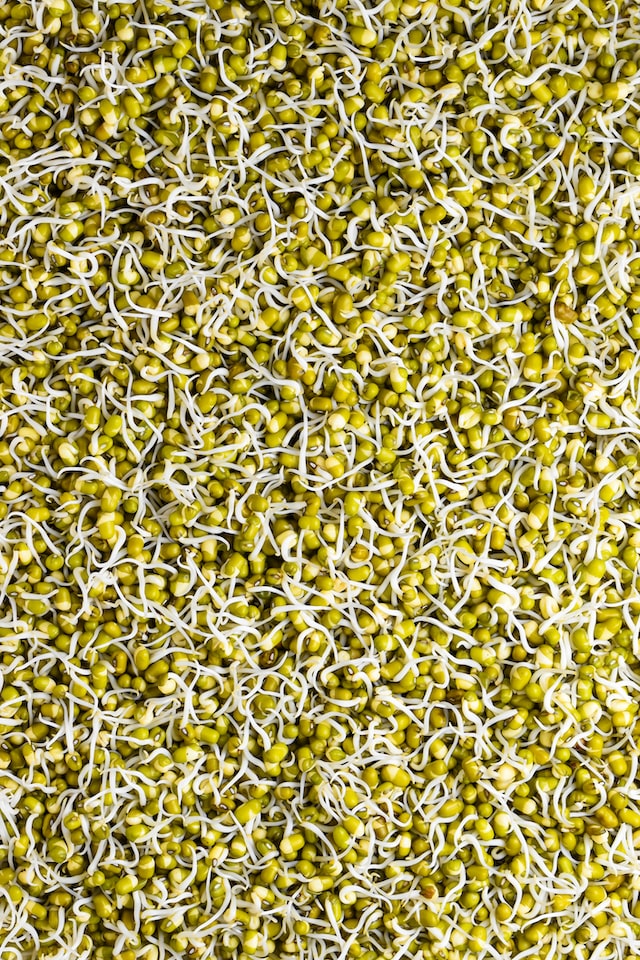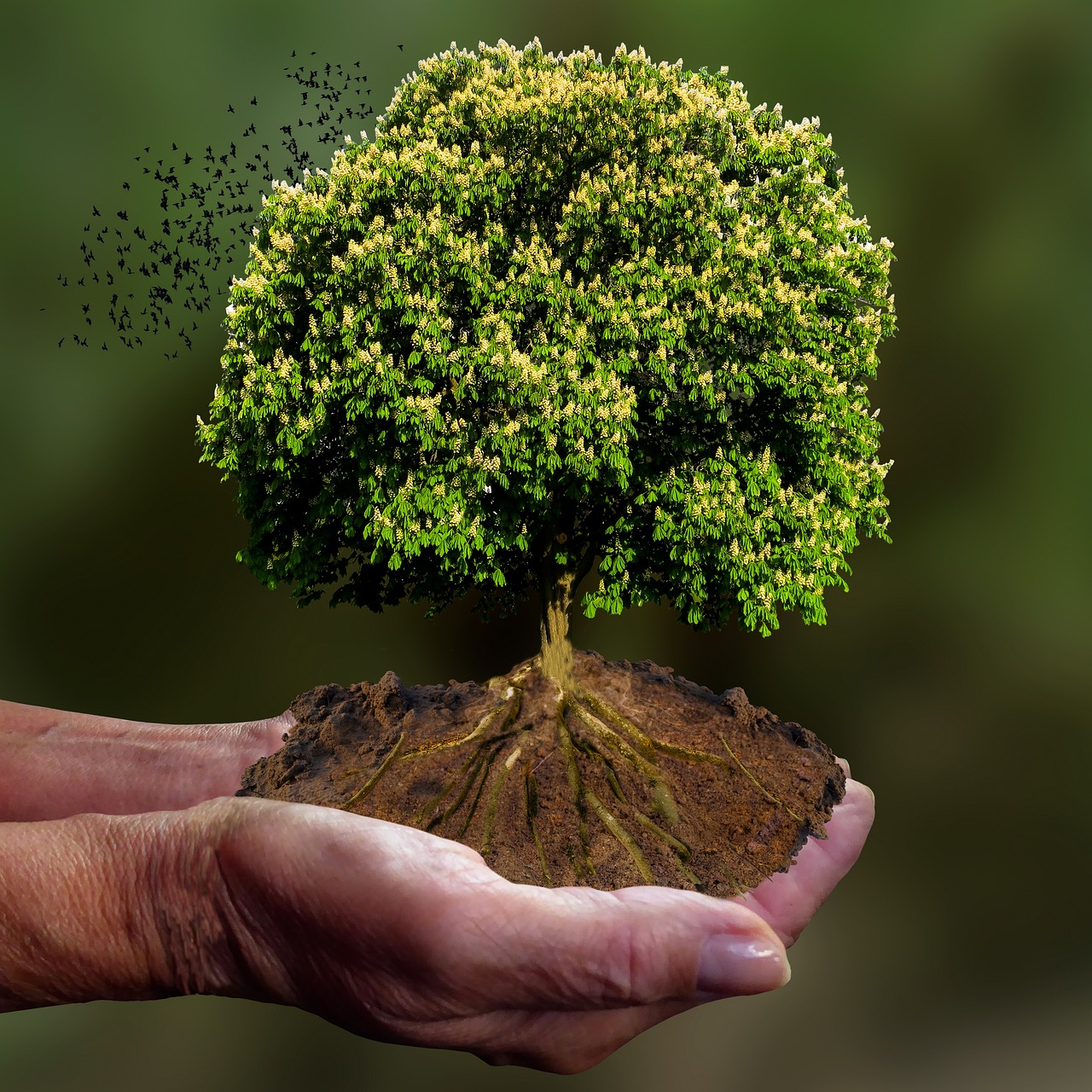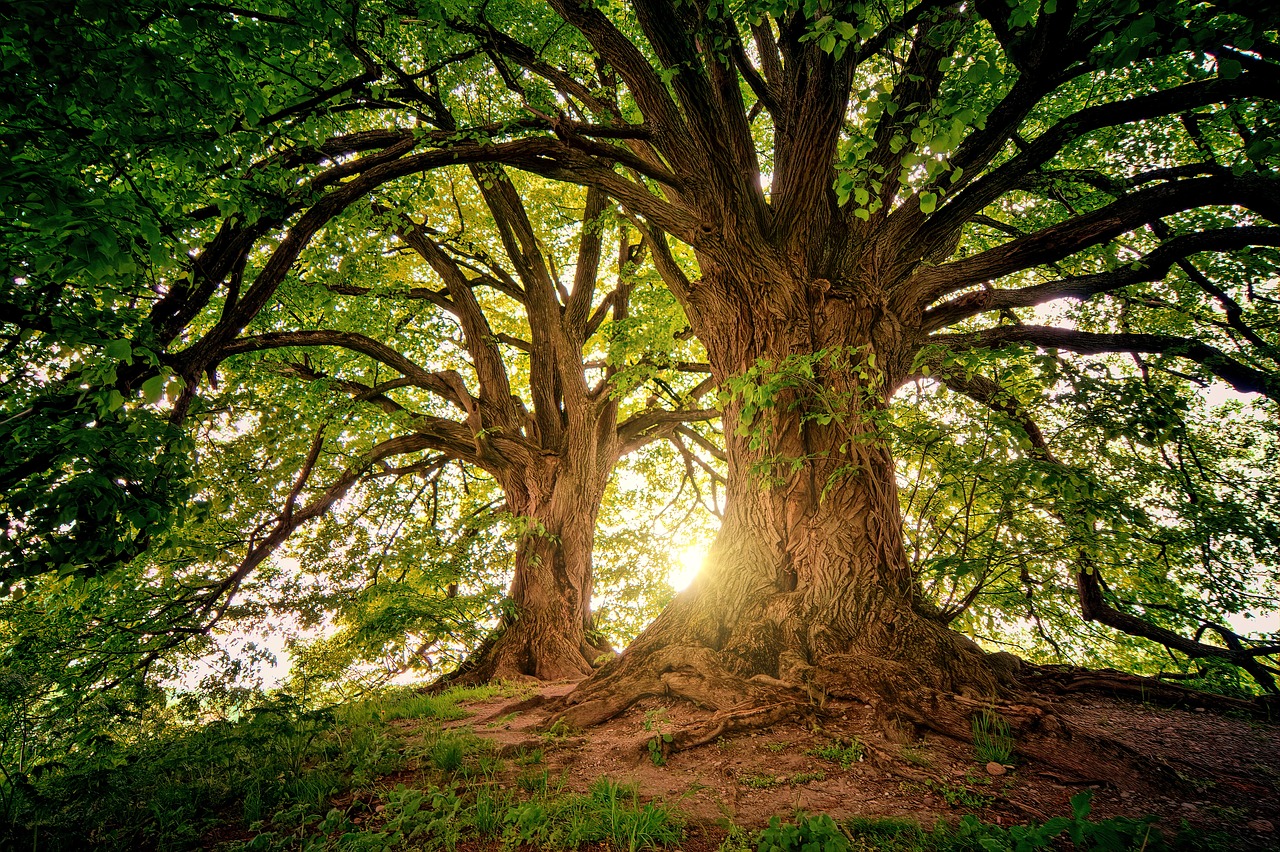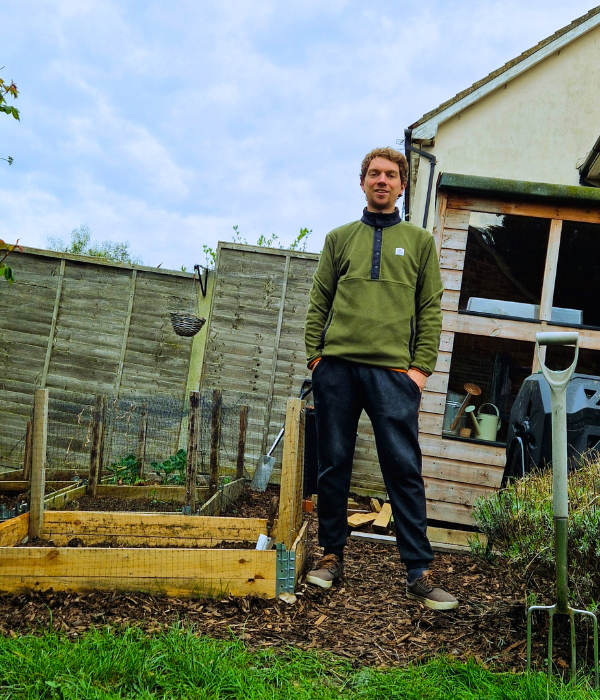Bamboo straws have become a firm favourite in the sustainability community over recent years, and for a good reason.
But with greenwashing prominent and companies looking to make products cheaply and quickly, it is important we always first ask the question, are bamboo straws eco-friendly? Or is there more to consider than what’s shown on the surface level?
In this post, we will investigate these reasons and find out why bamboo is (usually) a sustainable material.
We’ll also show you what to look out for and why bamboo isn’t always 100% sustainable. Ensuring that you can tick all those eco-friendly boxes and be sure no shortcuts are taken when buying bamboo straws online.
To understand why bamboo straws are a more sustainable option, we must first understand why the more common choice of plastic straws is not sustainable.
BAMBOO STRAWS ARE THE ECO-FRIENDLY SOLUTION TO SINGLE-USE PLASTIC STRAWS
Plastic straws have quickly become the poster boy of unnecessary plastic waste caused by humans, and we have all been told not to use them anymore.
Images and videos highlighting the dangers of these items ending up in nature have emerged. One viral video even shows a sea turtle with a plastic straw stuck in its nose, demonstrating the devastating effects just 1 bit of plastic can cause when not disposed of responsibly.
A focus on plastic straws has been criticized as reductionist as it’s only a small part of the problem. Whilst true in some ways, this argument is a big part of why the issue remains…
While only 1% of plastic waste in the sea coming from plastic straws seems small as a percentage, the reality is that it isn’t just the ocean where the problem lies…
There are up to 8.3 billion plastic straws polluting coastlines globally, and the others sitting in landfill sites worldwide should not be taken lightly either. 4.4 billion plastic straws are thrown away every year, in just the UK alone!
If we can’t isolate and solve the plastic straw problem, how can we expect to tackle the larger issue of (consumer-driven) ocean-bound plastic pollution?
BAMBOO STRAWS ARE NATURALLY BIODEGRADABLE
Even when disposed of properly, most plastic straws are not accepted by recycling centres as they are not a good fit for their modern machinery.
If you have seen the YouTube documentary, War on Plastic, you already know just how ineffective recycling plastic is… If you haven’t, here’s a fact that highlights why we can’t rely on recycling to save us from plastic pollution:
On the other hand, bamboo straws are easily recycled, so long as they are made naturally & organically — this is usually the case, but it is still best to check with your local recycling centre first!
Even better, natural Bamboo is considered a grass that is 100% biodegradable and home-compostable. You can throw it on your compost heap or green waste bin and let it naturally decompose, so it can be returned to the earth as healthy compost.
Put simply, plastic straws don’t compete with bamboo’s sustainability. At the end of their life cycles, one biodegrades naturally, and the other will sit in a landfill site for 100s of years to come. Or worse, they’ll end up polluting our natural ecosystems.
Even biodegradable-labelled PLA plastic straws are nothing more than a marketing gimmick. Greenwashing restaurant owners and consumers into thinking they are eco-friendly does more harm than good as these straws are not proven to biodegrade without incineration.
Being readily biodegradable and home-compostable is a great thing, but that’s not the only factor that sets the sustainable benefits of bamboo straws miles ahead of their plastic counterparts. Read on to find out more!
MADE FROM ORGANIC MATERIALS
Bamboo can be grown easily without toxic chemicals like pesticides, herbicides, and unnatural fertilizers, which is good for the soil, and therefore, the natural environment.
For this reason, when compared with the production of poly-based plastics that are more commonly used to produce straws, bamboo production is much cleaner than producing virgin plastics.
Virgin plastics typically take a lot of energy and machinery to produce and are one of the most greenhouse gas-intensive materials to make.
In a world overwhelmed & suffocated by the effects of mass plastic production, every little step we can take towards replacing plastic products with more natural products is a big win.
When we shift our focus to naturally growing organic grasses such as bamboo, this has zero negative impact, creating a positive impact instead. This is because the organic farming of bamboo cultivates healthy soil and trees which sequester carbon rather than release more of it.
FAST-GROWING BAMBOO IS READY TO HARVEST 5 TIMES FASTER THAN ANY OTHER TREE
As discussed previously, bamboo is a lot more sustainable when grown organically, using no pollutants or pesticides.
Another key benefit of bamboo is that although wooden in texture, it is classified as a grass because of its fast growth! In fact, it’s one of the fastest-growing plants in the world, and some species are able to grow a whopping 36 inches in just 24 hours.
A bamboo tree typically takes only 3 years to reach full maturity and can be harvested after only 2. Then 2 years later, that same tree is ready to harvest again. This cycle can be repeated for up to 40 years from 1 bamboo tree.
The sustainability benefits are obvious when you compare this to other woods and trees that can take 10s, 100s, or 1000s of years to grow to maturity.
Growing bamboo and harvesting it doesn’t need to deplete natural ecosystems and wild animal habitats (as we often see with rainforest destruction) – so long as the farming of these sites is sustainably managed.
When looking for bamboo straws — or other bamboo products — always try to check that they were farmed from panda-safe locations to ensure they aren’t risking the habitats of these rare and beautiful animals.
If the packaging or website isn’t transparent about this, then you could always ask a shop assistant or contact the company.
SUSTAINABLY HARVESTED & CLEANLY MANUFACTURED
Typically, with bamboo being light, it is easy to harvest & manufacture naturally, without the need for heavy machinery. This means less air pollution when compared with the manufacturing of straws from man-made materials such as poly plastics, metals, or glass.
Bamboo is ultimately a low-carbon, non-polluting material.
Bamboo straws are grown from a species of bamboo that is already the ideal natural shape for straws — with a hole already included! When you look at them this way, you can really see them as a gift from nature, readily made to help protect nature from one of many plastic-based problems.
This also means that resources are saved in the manufacturing process of bamboo straws. They are easy to manufacture cleanly by hand, without any chemical process needed to turn them from bamboo shoots to straws.
BAMBOO: THE REUSABLE & LONG-LASTING ECO-FRIENDLY STRAW OPTION
One of the main eco alternatives for plastic straws we’ve all seen — to some people’s dismay — is the paper straw.
Whilst more natural than plastic in makeup, the paper straw lacks a huge environmental benefit that bamboo straws possess — they are reusable and long-lasting.
Paper straws go soggy whilst drinking, and some fast-food restaurants and bars have even started handing out 2 paper straws with every drink for this reason.
Although paper straws are biodegradable they are still single-use & non-recyclable, plus you also can’t be sure the paper was made from a sustainable source, like bamboo or recycled paper in the first place.
When you consider every environmental benefit of bamboo straws we have discussed so far and that they are also reusable, it’s obvious that carrying our own bamboo straws, or even being given bamboo straws instead of paper, would be better for the planet.
The research behind reusable straws — including metal straws — shows that reusable straws are way less likely to be found littering the ocean than single-use plastic straws.
Once you are finished with your bamboo straw, you can throw it on a compost heap. It will naturally decompose and turn into soil, ready to be used again to grow more healthy plants. Talk about a closed-loop system!
THEY TEACH & REMIND US TO LIVE MORE SUSTAINABLY IN OUR DAILY LIVES
By owning a bamboo straw, we are taking on a responsibility to cut down on our personal plastic waste.
Cutting down on plastic takes more than simply owning a bamboo straw and other reusable items. It also takes organisation skills, planning and steely determination.
When we are heading out, it’s useful to think about things mindfully, from an eco-perspective. For example, if you’re heading to a cocktail bar, ask yourself before you leave, “am I likely to be given a plastic straw at this bar?”
Ok, I hear you… plastic straws are banned in the UK now. However, I’ve still seen them in cafes and bars since the ban, plus, as discussed above, it’s better to use bamboo straws than paper, anyway!
And then there’s the social aspect that really takes some effort from us:
You’ll need to bring your own straw, which will be brought up in conversation. Then you’ll need to remember to tell the bar staff not to give you a straw because you brought your own…
These little things go a long way to not only help cut down on plastic but also inspire and teach others about living more sustainably. It will make us more conscious of the waste we create when going about our daily lives.
A SHINING EXAMPLE OF A SUSTAINABLE BAMBOO STRAW COMPANY: JUNGLE STRAWS
All the above can be seen in action by looking at the business practices of Jungle Straws, whose transparency and commitment to ethical standards are the antidote to greenwashing.
The ethos of the brand is to restore as much as they are taking from the earth so that their organic bamboo products — including straws and cutlery — don’t just do less environmental harm but also have a positive impact on the people and environment around them.
All Jungle Straws are grown 100% organically without pesticides and are manufactured and harvested responsibly, without the need for chemicals.
All the bamboo used by Jungle Straws is farmed sustainably from wild plantations in Vietnam — a panda-free location with the perfect natural conditions for abundant bamboo growth across the Vietnamese countryside.
The team at Jungle Straws relocated from the UK to Vietnam to set up the farm and form relationships with the workers who farm their products. You can be extra certain of high ethical standards when buying from Jungle Straws, as they have literally gone way more than the extra mile to ensure their own high standards are met.
Because of Jungle Straws’ commitment to working closely with their farmers and spending time living in Vietnam to ensure good working conditions and ethical practices, I am happy to promote them as a truly sustainable and fair bamboo straw manufacturer.
Now when asking yourself ‘are bamboo straws eco-friendly?’ with companies as dedicated as Jungle Straws you can answer with a resounding yes!
Have you had a chance to use bamboo straws yet? If not, now is your chance. View the full range of Jungle Straws products here and let us know what you think.
SO ARE BAMBOO STRAWS ECO-FRIENDLY?
In summary, bamboo straws are eco-friendly as they are biodegradable, home-compostable, recyclable, and reusable. Plus bamboo is a fast-growing regenerative material that is easy to grow organically, without harmful chemicals.
Bamboo straws are good for the environment, as long as they meet all the criteria discussed above and are grown organically, in well-managed bamboo forests with a focus on sustainability.
